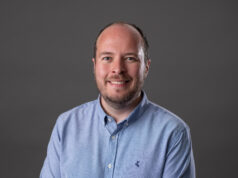 In a presentation taking place at the latest Vascular Access Society of Britain and Ireland (VASBI) meeting (28–29 September, Birmingham, UK), Thomas Richards (University Hospital Sussex, Brighton, UK) gave a presentation outlining an abstract which states that over half of UK senior vascular surgery trainees surveyed believe that they are not able to undertake independent primary access surgery.
In a presentation taking place at the latest Vascular Access Society of Britain and Ireland (VASBI) meeting (28–29 September, Birmingham, UK), Thomas Richards (University Hospital Sussex, Brighton, UK) gave a presentation outlining an abstract which states that over half of UK senior vascular surgery trainees surveyed believe that they are not able to undertake independent primary access surgery.
Richards outlined how he and co-author Karim El Sakka (University Hospital Sussex) collected these data; with the use of SurveyMonkey, a short questionnaire was circulated via Health Education England (HEE) deaneries and the UK vascular surgery trainees’ society (the Rouleuax Club) and was used to survey all senior (ST6–ST8) vascular surgery trainees in the HEE vascular surgery training programmes. In this survey, the trainees were asked to report a range of data, including their training grade, training deanery, experience of access surgery, and whether they felt able to independently undertake primary access surgery post-completion of training (post certificate of completion of training).
Of the 28 senior vascular surgery trainees that responded to the survey, 30% were at ST6 level, 33.3% ST7 and 37% ST8. The responses that these trainees provided showed that 29% had been involved in <10 cases, 36% in 10–25 cases, and 36% had been involved in >25 cases. The final result that was highlighted was the fact that 54% of senior vascular surgeon trainees felt that, even once they had completed their training, they would be unable to undertake independent primary access surgery.
“The problem is increasing demand [on vascular surgeons]. The solution is more organised and more formalised training.” Richards’s closing statements sums up the presentation and evidence that he provided; the lack of training for vascular access surgery is causing it to fall by the wayside in vascular surgery, which will only lead to continuously increasing demand on the surgeons that are trained in the relevant procedures. Richards feels that more training, such as the access surgery fellowship in Brighton (the only one accredited by the Vascular Society), are needed for this growing issue to be resolved.












